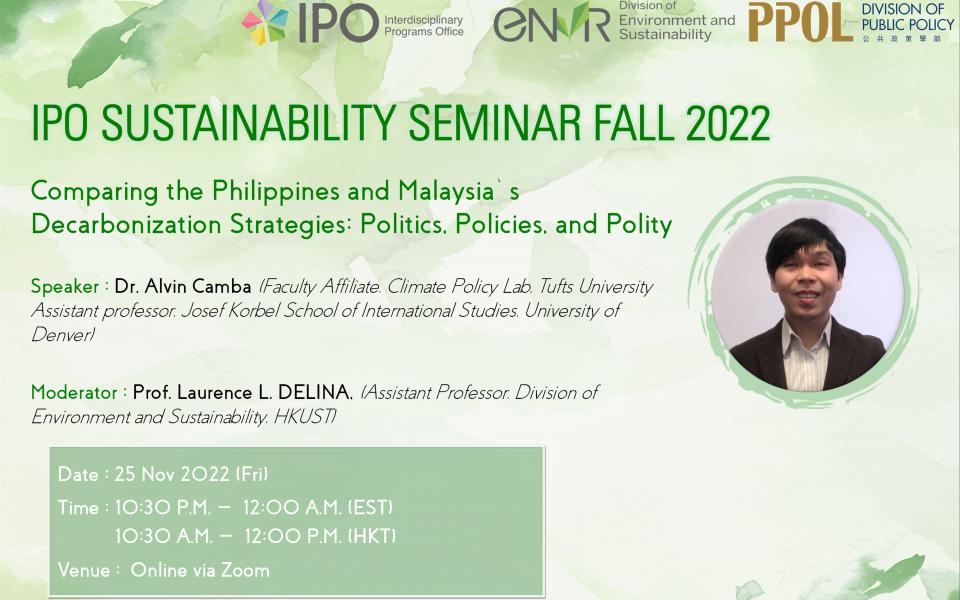Interdisciplinary Program Office (IPO) Sustainability Seminar Series Fall 2022 - Comparing the Philippines and Malaysia’s Decarbonization Strategies: Politics, Policies, and Polity
How are the Philippines and Malaysia pursuing decarbonization to fulfill their intended nationally determined contributions? By constructing climate policy inventories in both countries, I argue that their decarbonization policies reflect the demands of dominant elites, allowing political and economic elites to pursue their political goals in their respective polities. In the Philippines, the only institutions that can finance and enforce decarbonization policies are the respective government departments, such as the Department of Natural Resources and Environment, Finance, Agriculture, and etc. Since 2010, these departments have done little to forward policies related to renewable energy, sustainable housing, transportation, and land-use procedures. Instead, the Philippine Commission for Climate Change (CCC), a government institution under the Office of the President, passes climate change and decarbonization recommendations, which, unfortunately, are often ignored by the respective departments. However, the CCC has been useful to the Presidents in power, allowing them to brag about their climate change portfolio while effectively doing nothing, a reflection of Philippine political economy. In Malaysia, a similar situation exists where the Ministries under the Prime Minister have the power to finance and enact climate change policies. However, the most effective policies that have been implemented comprise the reclassification of forest reserves, which has allowed Malaysian administrations to “contribute” while doing little in actuality. The Malaysian government does this to shield its oil and gas sectors from international pressure. The Malaysian state-owned enterprises, particularly in automobiles and manufacturing, appear to be forwarding the most progressive climate change policies, a reflection of Malaysia’s political economy.
Alvin Camba is an Assistant Professor at the Josef Korbel School of International Studies at the University of Denver. He received his PhD in Sociology from Johns Hopkins University. He is a faculty affiliate at the Center for International Environment & Resource Policy and the Climate Policy Lab at the Fletcher School at Tufts University. His research has been awarded multiple best research paper awards by several academic networks, published in top development and political economy journals, and contributed to widely circulated think tank policy papers. He has presented his work or consulted for international organizations, state institutions, and political risk firms.
